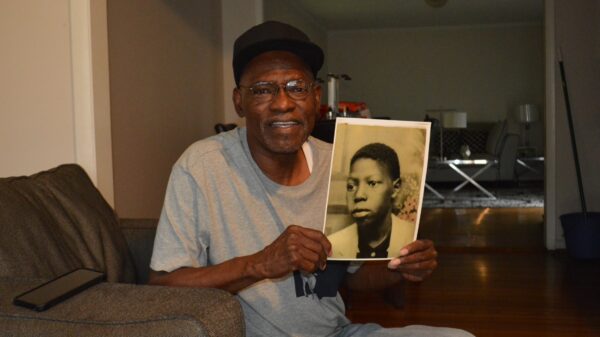Slavery was bad. The end.
This is, apparently, the historical lesson that former Alabama congressman Mo Brooks would like taught to school children.
Slavery was abhorrent. It ended. Why talk about it anymore?
That’s essentially what Brooks told Reuters recently for a lengthy and exhaustive piece exploring the ties many American politicians’ families have to slavery. Brooks, as usual, dismissed the value of talking about that history and how the effects of slavery continue to play a pivotal role in American society today.
“Hopefully, everybody in America is smart enough to know that slavery is abhorrent,” Brooks told Reuters in a phone interview. “So the question then becomes, if everybody already knows that it’s abhorrent, what more can you teach from that?”
One of Brooks’ ancestors was a slave owner. He didn’t care to talk about that.
Now, before we move forward, let me make one thing perfectly clear: Having slave owners in your family tree doesn’t make you a bad person, nor does it predispose you to lean into racism. Just as having murderers and other awful people in your family history doesn’t push you towards those bad behaviors.
Hell, my family has more than its share of drunks, racists, wife beaters and, I’m certain, confederates. None of that has deterred me from believing that all people are equal, that violence is never the best option and that skin color is perhaps the absolute dumbest way to judge a human being. Every story I’ve ever heard of my ancestors doing awful things has only made me want to be better.
I’m honestly at a loss for why you’d feel any other way, or how in the world you could possibly dismiss the idea that education and understanding leads to a better, more empathetic society.
But then … well, maybe that’s the point.
Maybe – just maybe – the idea of a society that’s well informed about the history of racism and other atrocities committed in the name of bigotry and intolerance could really throw a wet blanket on the tactics used by some people. Tactics meant to divide and separate in order to keep folks who actually have quite a bit in common from ever realizing that they’re not actually each other’s enemies.
Otherwise, it’s hard to imagine that a person who went to college at a fine school like Duke University, as Mo Brooks did, could ever in a million years say something so obviously stupid.
Brooks knows that slavery is the starting point of the conversation that he – and a whole bunch of others – are trying desperately to keep out of the minds of young people. It moves from slavery and racism to Jim Crow and discrimination, and it presents all sorts of explanations for why our prisons are populated with a high number of Black people or why wealth distribution in this country seems to have skipped over so many Black neighborhoods.
And not a single one of those explanations has a thing to do with the amount of melanin in your body.
Boy, if the kids find out that we can trace a lot of these societal issues directly to the centuries of discrimination and abuse – and they have absolutely zero to do with race and ethnicity – why, those kids might start ignoring the ignorant dog whistles from a certain set of politicians who rely solely on those tropes for career survival.
And Lord help us if the Tommy Tubervilles of the world have to start trying. Can you get a buyout from the U.S. Senate?
That Reuters piece is fascinating, and it should make a whole bunch of people stop and think for a moment. Tuberville, for example, is five generations removed from family that owned six enslaved people. Gov. Kay Ivey is four generations from family that owned 33 enslaved people. Rep. Robert Aderholt is five generations from ancestors who owned five enslaved people.
Again, this does not make these people responsible for slavery, or for any of the horrible things that have happened to Black people – or other minorities – since that time.
But those people are responsible for their actions and for the way they handle race and racism. They’re responsible for the lives they have affected and for the young minds they’ve had the opportunity to influence in positive ways.
What Brooks asked for with his comments has essentially been the position of the Republican Party, and specifically the Alabama GOP, on topics of racism and historical context. They’ve asked to bury the conversations, to white wash the history, to tone down the atrocities and to leave today’s young people with a less than accurate view of the real racial history of this country. While at the same time rewriting the history of the confederacy and fighting tooth and nail to keep monuments to monsters standing all over the state.
So, no, being related to slave owners doesn’t make anyone a racist or a bad person. However, standing in the way of a true teaching of history, ensuring that Black Americans continue to suffer from the same racism, that does.



















































